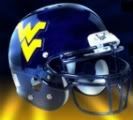Post by elp525 on Jun 11, 2010 4:59:46 GMT -5
June 10, 2010
By Dave Hickman
Staff writer
MORGANTOWN - West Virginia's athletic department is in perhaps the best shape it's ever been, both financially and competitively. And if money and competitiveness were the only considerations, Oliver Luck probably would not have taken the job as the school's athletic director.
There is more to it than that, though. With the Pac-10 and the Big Ten apparently ready to expand, schools across the country are trying to brace themselves for change and position themselves as best they can, West Virginia included.
Meeting that challenge could be tricky, and a challenge is something from which Luck - named Thursday to succeed Ed Pastilong as WVU's athletic director - has never backed away. He was the president and CEO of NFL Europe for five years, has built sports stadiums in Houston and is now trying to sell soccer in that city as the president of Major League Soccer's Houston Dynamo.
"Absolutely,'' Luck said Thursday when asked if the challenge was part of the allure of the job. "If you look at the career that I've had in the sports business, or even going back to playing ball, I relish the opportunity to take on hard challenges, whether that's selling American football in Europe for a 10-year period or working in the soccer industry in this country. Soccer is a growing sport, but it's not one of the established sports like the NFL or MLB or the NBA or the National Hockey League is. So I've always enjoyed taking on challenges.
"And I think quite honestly, and this doesn't just apply to WVU, but this is an extraordinarily challenging time for a lot of institutions, given all that's in play with intercollegiate athletics and conference affiliations and all that. The foundation at WVU is great, absolutely. But because it's a challenging time with a lot of challenging external forces, it's something that really was attractive to me, more so than perhaps in a steady and slow time when not much was necessarily at stake.''
Luck looks at the conference landscape and sees the same thing as everyone else - mystery. The Big Ten was thought to hold the key and could expand in several directions, one of those being the Big East, of which WVU is a member. The Pac-10, though, is now apparently being proactive, and those shockwaves could stretch across the country.
But regardless of what happens with conference realignment in the days, weeks and months to come, those are likely only to be the first moves in a landscape that could shift dramatically. Luck compared all the talk surrounding it to a chess match.
"Obviously, as I think anybody who follows intercollegiate athletics knows, this is a particularly challenging time in intercollegiate athletics given all the conference realignment rumors and chess moves that are starting to be made,'' Luck said. "I think there will be further activity that goes on, certainly this summer and into next year. I'm not sure that even if the dust settles that that will be a permanent solution.
"And this realignment has a major effect on a lot of institutions, and of course WVU is no exception. I look forward to working with [WVU president James Clements] and his staff that he's put together to really make sure that we protect WVU as best we possibly can, to make sure our affiliations are the best affiliations we can have to further the growth of our university, to improve our academics and again, to build on the great foundation that Eddie and his team have left at WVU.''
Still, the challenge alone was not enough to lure Luck back to his alma mater. With two children at Stanford in the fall and two more still at home, Luck needed some convincing.
Luck talked about getting to know Clements as "a family guy'' even before the athletic director's position came open and Luck was a member of the Board of Governors. Both are married with four children.
"My wife, thank goodness, is a very flexible person. We've lived in Europe and she grew up overseas because her father was in the offshore oil business. So she's accustomed to moving around,'' Luck said. "The most important thing in my life, certainly, is family. So we had a lot of thinking, my wife and I, in terms of making the decision. Can we do this? Is it possible? And because of the affirmation that Jim and [Clements' wife] Beth have given me in terms of how they've raised their family, I thought it was possible to do this.
"It did take some thought on our part, as well as a good bit of jaw-boning from the president.''
Luck was asked in jest if his oldest son, Andrew, was part of the deal. Andrew Luck is the starting quarterback at Stanford, a top NFL prospect and, Oliver Luck admits, "much'' better than he was as a quarterback at WVU.
"I don't think Andrew's part of the deal,'' Luck said. "He's happy out at Stanford and he's very happy with Coach [Jim] Harbaugh. I don't think he plans to transfer anywhere.''
By Dave Hickman
Staff writer
MORGANTOWN - West Virginia's athletic department is in perhaps the best shape it's ever been, both financially and competitively. And if money and competitiveness were the only considerations, Oliver Luck probably would not have taken the job as the school's athletic director.
There is more to it than that, though. With the Pac-10 and the Big Ten apparently ready to expand, schools across the country are trying to brace themselves for change and position themselves as best they can, West Virginia included.
Meeting that challenge could be tricky, and a challenge is something from which Luck - named Thursday to succeed Ed Pastilong as WVU's athletic director - has never backed away. He was the president and CEO of NFL Europe for five years, has built sports stadiums in Houston and is now trying to sell soccer in that city as the president of Major League Soccer's Houston Dynamo.
"Absolutely,'' Luck said Thursday when asked if the challenge was part of the allure of the job. "If you look at the career that I've had in the sports business, or even going back to playing ball, I relish the opportunity to take on hard challenges, whether that's selling American football in Europe for a 10-year period or working in the soccer industry in this country. Soccer is a growing sport, but it's not one of the established sports like the NFL or MLB or the NBA or the National Hockey League is. So I've always enjoyed taking on challenges.
"And I think quite honestly, and this doesn't just apply to WVU, but this is an extraordinarily challenging time for a lot of institutions, given all that's in play with intercollegiate athletics and conference affiliations and all that. The foundation at WVU is great, absolutely. But because it's a challenging time with a lot of challenging external forces, it's something that really was attractive to me, more so than perhaps in a steady and slow time when not much was necessarily at stake.''
Luck looks at the conference landscape and sees the same thing as everyone else - mystery. The Big Ten was thought to hold the key and could expand in several directions, one of those being the Big East, of which WVU is a member. The Pac-10, though, is now apparently being proactive, and those shockwaves could stretch across the country.
But regardless of what happens with conference realignment in the days, weeks and months to come, those are likely only to be the first moves in a landscape that could shift dramatically. Luck compared all the talk surrounding it to a chess match.
"Obviously, as I think anybody who follows intercollegiate athletics knows, this is a particularly challenging time in intercollegiate athletics given all the conference realignment rumors and chess moves that are starting to be made,'' Luck said. "I think there will be further activity that goes on, certainly this summer and into next year. I'm not sure that even if the dust settles that that will be a permanent solution.
"And this realignment has a major effect on a lot of institutions, and of course WVU is no exception. I look forward to working with [WVU president James Clements] and his staff that he's put together to really make sure that we protect WVU as best we possibly can, to make sure our affiliations are the best affiliations we can have to further the growth of our university, to improve our academics and again, to build on the great foundation that Eddie and his team have left at WVU.''
Still, the challenge alone was not enough to lure Luck back to his alma mater. With two children at Stanford in the fall and two more still at home, Luck needed some convincing.
Luck talked about getting to know Clements as "a family guy'' even before the athletic director's position came open and Luck was a member of the Board of Governors. Both are married with four children.
"My wife, thank goodness, is a very flexible person. We've lived in Europe and she grew up overseas because her father was in the offshore oil business. So she's accustomed to moving around,'' Luck said. "The most important thing in my life, certainly, is family. So we had a lot of thinking, my wife and I, in terms of making the decision. Can we do this? Is it possible? And because of the affirmation that Jim and [Clements' wife] Beth have given me in terms of how they've raised their family, I thought it was possible to do this.
"It did take some thought on our part, as well as a good bit of jaw-boning from the president.''
Luck was asked in jest if his oldest son, Andrew, was part of the deal. Andrew Luck is the starting quarterback at Stanford, a top NFL prospect and, Oliver Luck admits, "much'' better than he was as a quarterback at WVU.
"I don't think Andrew's part of the deal,'' Luck said. "He's happy out at Stanford and he's very happy with Coach [Jim] Harbaugh. I don't think he plans to transfer anywhere.''





